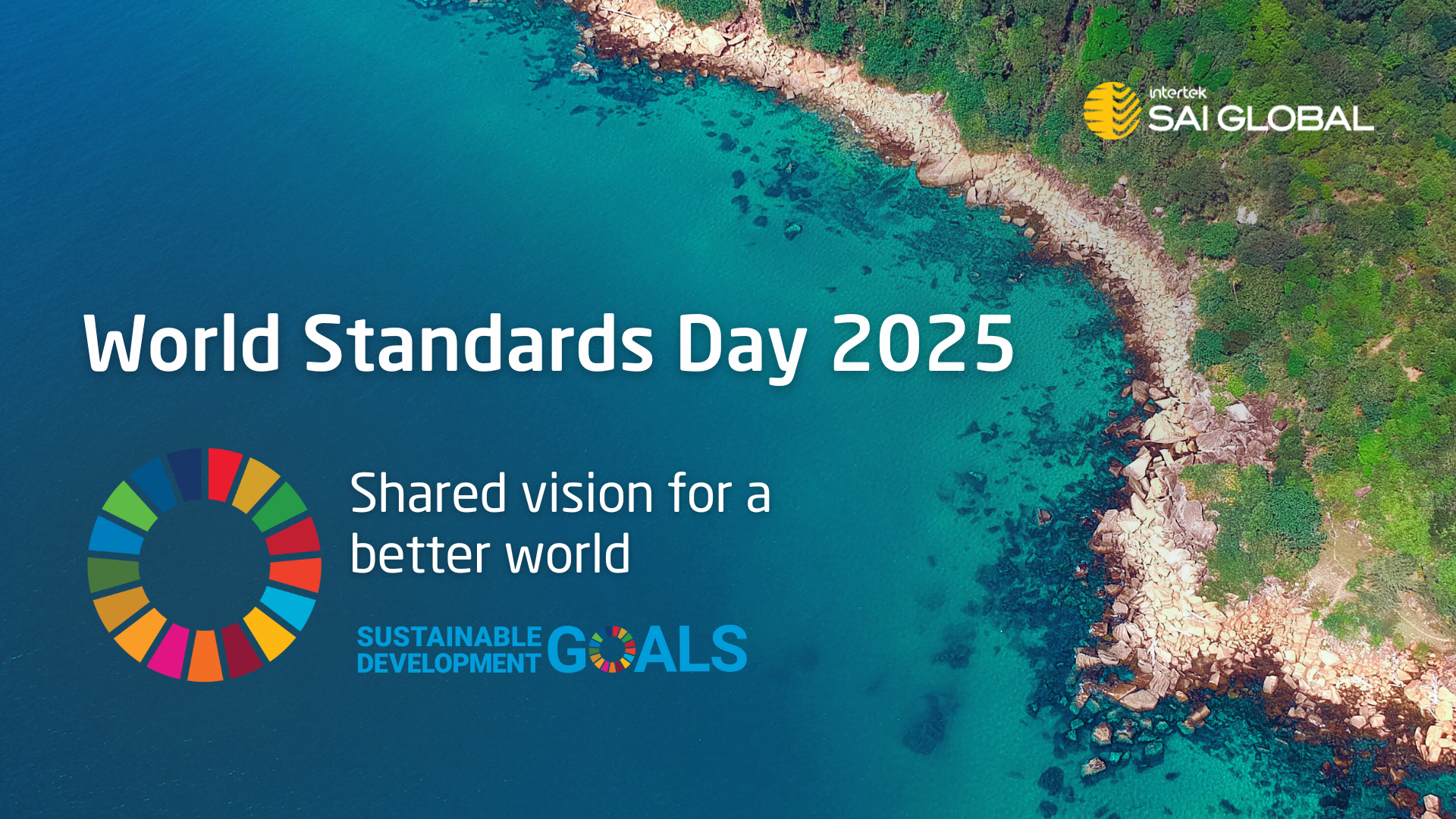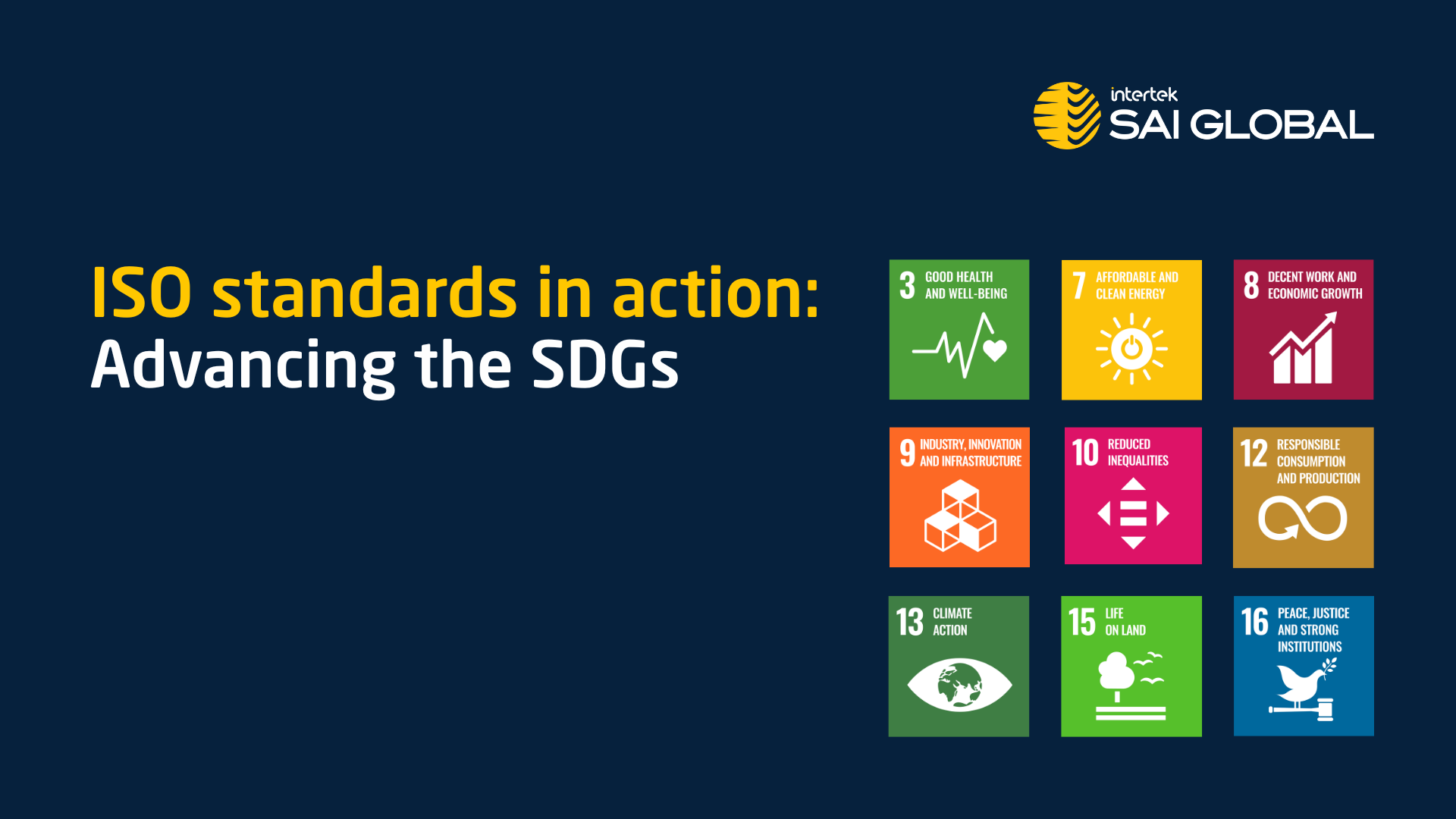4 mins read


World Standards Day 2025: Driving change for a better world: How ISO Standards support the Sustainable Development Goals
Every year on 14 October, the global community celebrates World Standards Day. This is an opportunity to recognise the collective efforts of experts, organisations, and standardisation bodies worldwide who work to develop and uphold international standards.
This year, as industries face increasing pressure to address climate change, social equity, and responsible growth, the role of ISO standards has never been more vital. These frameworks do more than improve quality and consistency; they help organisations translate sustainability commitments into measurable actions that support the United Nations Sustainable Development Goals (SDGs).
A shared language for sustainable progress
ISO standards provide a common framework for organisations of all sizes to operate responsibly and efficiently. They offer practical tools for managing risk, driving innovation, and ensuring continuous improvement – all essential elements in advancing the SDGs’ global agenda for people, planet, and prosperity.
By aligning systems and operations with recognised standards, organisations gain the ability to:
Embed sustainable practices into daily operations
Reduce waste and optimise resource use
Strengthen governance and ethical decision-making
Build resilience in a changing global environment
Standards help create trust – between businesses, regulators, customers, and communities – and ensure that sustainability isn’t just aspirational, but demonstrable.


ISO standards in action: Advancing the SDGs
Across industries, ISO management systems serve as building blocks for sustainable development. Here’s how some of the most widely adopted standards contribute to key SDGs:
ISO 14001 – Environmental Management Systems
Highlighting the positive impact businesses can have on the environment, ISO 14001 supports organisations in reducing their environmental impact through efficient resource use, pollution prevention, and sustainable operations – directly contributing to SDG 12 (Responsible Consumption and Production), SDG 13 (Climate Action), and SDG 15 (Life on Land).
ISO 45001 – Occupational Health & Safety Management Systems
Workplace health and safety is the focus for ISO 45001. This Standard promotes safe and healthy workplaces by preventing injury and ill health, aligning with SDG 3 (Good Health and Well-being) and SDG 8 (Decent Work and Economic Growth).
ISO 50001 – Energy Management Systems
ISO 50001 provides a framework for improving energy efficiency and reducing greenhouse gas emissions, driving progress toward SDG 7 (Affordable and Clean Energy) and SDG 13 (Climate Action).
ISO 27001 – Information Security Management Systems
Protecting data is a core focus for ISO 27001. This Standard helps organisations protect information integrity and build digital trust – essential for innovation, resilience, and accountability – aligning with SDG 9 (Industry, Innovation and Infrastructure) and SDG 16 (Peace, Justice and Strong Institutions).
ISO 26000 – Social Responsibility
As a guide to social responsibility, ISO 26000 offers organisations frameworks for ethical governance, human rights, labour practices, and community involvement, reinforcing SDG 10 (Reduced Inequalities), SDG 12 (Responsible Consumption and Production), and SDG 16 (Peace, Justice and Strong Institutions).
Together, these standards form an integrated approach to sustainability, helping organisations not only meet compliance requirements but also lead with purpose and integrity.


c
For organisations, aligning with ISO standards offers more than certification – it’s a pathway to credible and measurable sustainability outcomes.
By embedding management systems aligned to international best practice, businesses can:
Benchmark progress toward sustainability goals
Demonstrate transparency and accountability to stakeholders
Drive continuous improvement and innovation

